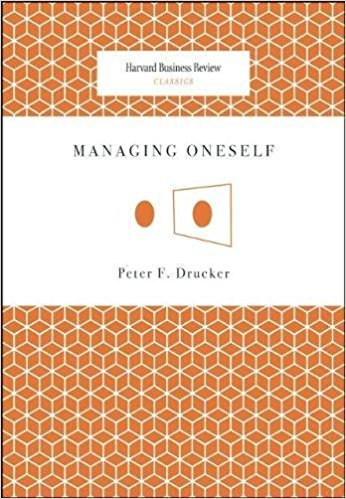- Rating: 8/10
- Last Read: March 2018
- Grab it on Amazon
My Notes
What Are My Strengths?
-
The only way to discover your strengths is through feedback analysis
- Whenever you make a key decision, write down what you think will happen. 9-12 months later, compare actual results with your expectations
- This method will show you within 2-3 years where your strengths lie
-
Post-feedback analysis action items:
- Concentrate on your strengths
- Put yourself where your strengths can produce results
- Work on improving your strengths
- Analysis will show where to improve and what new skills to acquire…Address knowledge gaps
- Discover where your intellectual arrogance is causing disabling ignorance and overcome it
- Essential to remedy bad habits that effect performance
- Concentrate on your strengths
-
Bulldozers move mountains; ideas show where bulldozers go to work
-
Comparing your expectations with your results also indicates what not to do
- One should waste as little effort as possible on improving areas of low competence
-
It takes far more energy and work to improve from incompetence to mediocrity than it takes to improve from first-rate performance to excellence
-
Energy, resources and time should go to making a competent person into an all-star performer
How Do I Perform?
-
The first thing to figure out is if you’re a reader or a listener
- Watch Eisenhower’s supreme commander speeches
-
The second thing to figure out is how do you learn?
- Understanding this is the easiest to acquire as it pertains to self-knowledge
-
Acting on knowledge is the key to performance
- Not acting condemns one to nonperformance
-
Also have to ask “Do I work well with people or am I a loner?"
- If you work well with people, in what relationship?
-
Do I produce results as a decision maker or an adviser?
- This is the reason #2 person in org usually fails when given #1 position
- Strong decision makers usually put strong advisers in #2 position. But when they go to #1, they fail.
-
Do I perform well under stress or do I need a highly structured and predictable environment?
-
Do I work best in a big org or a small one?
-
Conclusion: Do not try to change yourself, you are unlikely to succeed. But work hard to improve the way you perform. And try not to take on work you cannot perform or will only perform poorly.
What Are My Values?
-
Mirror test - Make you ask yourself, “What kind of person do I want to see in the mirror in the morning?"
-
To be effective in an org, a person’s values must be compatible with an org’s values.
-
A person’s strengths and the way that person performs rarely conflict; the two are complementary
- There is sometimes conflict between a person’s values and his or her strengths
- What one does very well may not fit with one’s value systems
Where Do I Belong?
-
You should decide where you belong once you know the answers to ‘what are my strengths, how do i perform, and what are my values?'
-
Successful careers are not planned. They develop when people are prepared for opps bc they now their strengths, method of work and values
- Knowing where one belongs can transform an ordinary person into an outstanding performer
What Should I Contribute?
-
Knowledge works have to learn to ask the question, “What should my contribution be?"
- To answer it, they must address 3 distinct elements
- What does my situation require?
- Given my strengths, way of performing, and values, how can I make the greatest contribution to what needs to be done?
- What results have to be achieved to make a difference?
- To answer it, they must address 3 distinct elements
-
It is rarely possible (and not fruitful) to look too far ahead. A plan can usually cover no more than 18 months.
- So the question should be “Where and how can I achieve results that will make a difference within the next year and a half?"
- The results should be hard to achieve, they should require “stretching"
- They should be within reach
- Results should be meaningful and make a difference
- Results should be measurable and visible
- So the question should be “Where and how can I achieve results that will make a difference within the next year and a half?"
Responsibility For Relationships
- To be effective, you have to know strengths, performance modes, and values of your coworkers
- It is required to observe, find out how they work, and adapt themselves to what makes their bosses more effective
- First secret of effectiveness is to understand the people you work with and depend on so you can make use of the big 3
Things to communicate to co-workers:
- This is what I’m good at. This is how I work. These are my values. This is the contribution I plan to concentrate on and the results I should expect to deliver
- Asking them, “What do I need to know about your strengths, how you perform, your values, and proposed contribution?"
The Second Half Of Your Life
Due to most careers now being knowledge based, execs get bored easily and need to begin a second career.
3 ways to develop a 2nd career:
- Actually start one (move to another org, different lines of work)
- Develop a parallel career
- Social entrepreneuership
1 prerequisite for managing the second half of life: You must begin long before entering it
-
If one does not begin to volunteer before one is 40 or so, one will not volunteer once past 60
-
In a society in which success has become so terribly important, having options will become increasingly vital
